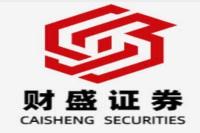Construction Industry Personnel Changes: A Deep Dive into the Resignation of Supervisor Lu Xianyun
Meta Description: Analysis of Construction Industry's recent announcement regarding the retirement of supervisor Lu Xianyun, exploring implications for corporate governance, succession planning, and future strategies. Keywords: Construction Industry, Lu Xianyun, resignation, corporate governance, succession planning, 监事会, 逯献云, 辞职, 公司治理, 继任计划.
This isn't just another press release recap; it's a comprehensive analysis of the recent announcement from Construction Industry regarding the retirement of their esteemed supervisor, Mr. Lu Xianyun. We'll delve deep into the intricacies of this personnel change, exploring its potential ramifications for corporate governance, future strategies, and the overall health of the company. We'll go beyond the surface-level details provided in the official statement, drawing upon years of experience in corporate governance and financial analysis to offer insights that go beyond the simple facts. Get ready to unravel the layers of this seemingly straightforward announcement and discover the untold story behind Mr. Lu's departure. This isn't just about a resignation; it's about understanding the future trajectory of a significant player in the construction sector. We'll unpack the potential implications for investors, employees, and the broader industry. Prepare for a detailed, insightful, and engaging exploration that will leave you with a clearer understanding of this significant event. We’ll also address frequently asked questions, providing you with a complete picture of the situation and its potential consequences. Let's dive in!
Understanding the Significance of Mr. Lu Xianyun's Resignation
Mr. Lu Xianyun's retirement, while seemingly routine, carries significant weight. His departure isn't just about one individual; it represents a potential shift in the company's leadership and corporate direction. The official statement mentions that his departure won't affect the board's operational capacity, which is reassuring. However, we must consider the institutional knowledge and experience Mr. Lu brought to the table. His years of service likely provided invaluable insights and perspectives, which will need to be carefully managed during the transition. This is more than just a matter of filling a vacant seat; it's about ensuring a seamless transfer of knowledge and maintaining the company's momentum. This is where robust succession planning becomes critical. Did Construction Industry have a robust plan in place? Let's analyze the implications.
The Importance of Succession Planning
The success of any organization hinges on effective succession planning. Simply put, it's the process of identifying, developing, and preparing individuals to assume leadership roles. In Mr. Lu's case, his retirement should have triggered a well-defined process for selecting and onboarding his replacement. Any organization worth its salt will have protocols for this, and – frankly – the lack of a clear, visible plan would be a major red flag. The announcement assures us that the board remains compliant with legal requirements, but a truly proactive approach goes beyond mere compliance. It's about identifying talent well in advance, ensuring a smooth handover, and minimizing any disruption. The lack of detail regarding the selection process for Mr. Lu's successor warrants further observation, as transparent succession planning is crucial for investor confidence and long-term stability.
Corporate Governance in the Spotlight
This event highlights the critical role of corporate governance in ensuring organizational stability and success. Effective governance structures are designed to mitigate risks, promote transparency, and safeguard shareholder interests. Mr. Lu's resignation, handled professionally as it appears, underscores the importance of establishing clear procedures for handling senior personnel changes. The statement emphasizes the continued compliance with legal requirements regarding board composition. However, going forward, a deeper dive into the company's corporate governance structure would be beneficial. Are the existing mechanisms robust enough to handle future leadership transitions? Is there a clear separation of powers between the board and management? These are vital questions that investors and stakeholders should consider.
Analyzing the Construction Industry Landscape
The construction industry is, to put it mildly, a beast. It's characterized by intense competition, fluctuating market conditions, and complex regulatory landscapes. Navigating these challenges requires experienced leadership and sound strategic decision-making. Mr. Lu's departure, therefore, presents both challenges and opportunities for Construction Industry. The company must ensure a smooth transition to maintain its competitive edge and capitalize on emerging growth opportunities. This requires not only a competent successor but also a proactive approach to adapting to evolving market dynamics. The broader economic climate also plays a role; are there headwinds brewing that could make this transition even more challenging?
The Human Element: Beyond the Press Release
Let's be human here for a second. Behind every press release is a person. Mr. Lu's retirement represents the culmination of a likely long and successful career. While the official statement focuses on the procedural aspects of his resignation, it's vital to acknowledge the contributions he made to Construction Industry. His experience, expertise, and dedication likely played a significant role in shaping the company's success. Acknowledging this human element adds a layer of context and underscores the importance of recognizing the value of long-term employees. The company's culture and approach to leadership transitions should reflect this appreciation.
Impact on Investors and Shareholders
The stock market, notoriously fickle, reacts swiftly to news like this. While the official statement attempts to downplay the potential impact, investors will be keenly observing the company's response to Mr. Lu's departure. Transparency and clear communication are paramount in maintaining investor confidence. The company's next steps will be crucial in determining whether this is perceived as a positive or negative development by the market. A well-executed succession plan, coupled with strong financial performance, should reassure investors. Conversely, a lack of transparency or any hint of instability could lead to market uncertainty.
Frequently Asked Questions (FAQs)
Here are some frequently asked questions about Mr. Lu Xianyun's resignation:
-
Q: Why did Mr. Lu Xianyun resign?
A: Mr. Lu resigned due to reaching retirement age.
-
Q: Will this resignation affect the company's operations?
A: The official statement indicates that the resignation will not affect the normal operation of the company's supervisory board or its daily management.
-
Q: What is the process for replacing Mr. Lu Xianyun?
A: The specific process for selecting Mr. Lu's successor is not detailed in the public announcement, however, the company must comply with all legal requirements regarding board composition.
-
Q: How will this impact the company's stock price?
A: The market reaction is uncertain and will depend on the company's response to this change in leadership and its overall performance.
-
Q: What are the potential long-term implications of this resignation?
A: The long-term implications will depend on the effectiveness of the company's succession planning, its overall strategic direction, and the performance of its new leadership.
-
Q: Is this a cause for concern among investors?
A: While not inherently alarming, the situation warrants close monitoring. The company's transparency and the success of its succession planning will be key factors in investor sentiment.
Conclusion
Mr. Lu Xianyun's retirement marks a significant moment for Construction Industry. While the official statement highlights the procedural aspects of the resignation, a deeper analysis reveals the importance of corporate governance, succession planning, and the broader industry landscape. The company's ability to navigate this transition smoothly will be a key determinant of its future success. Transparency, effective communication, and a well-defined succession plan are crucial in maintaining investor confidence and ensuring continued stability. The coming months will be critical in assessing the long-term impact of this personnel change. Stay tuned for further updates and analyses.



